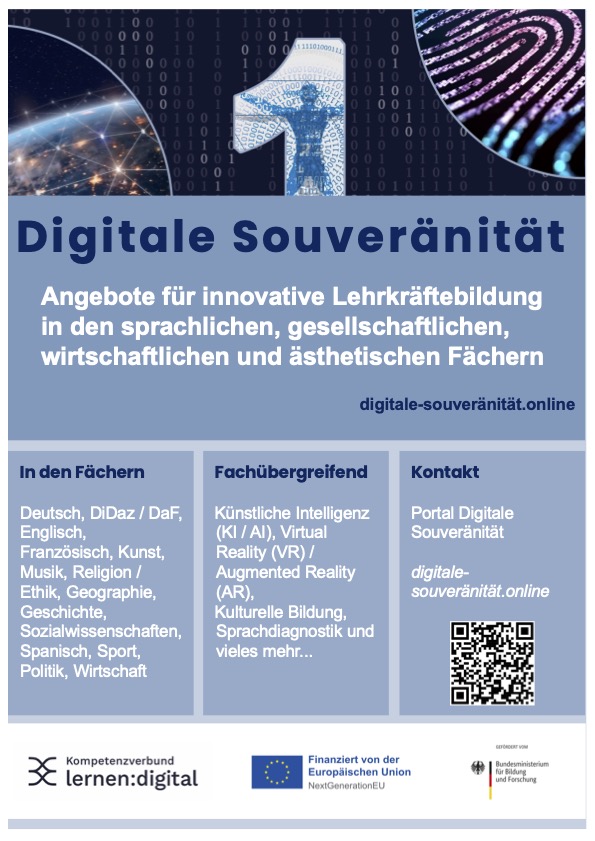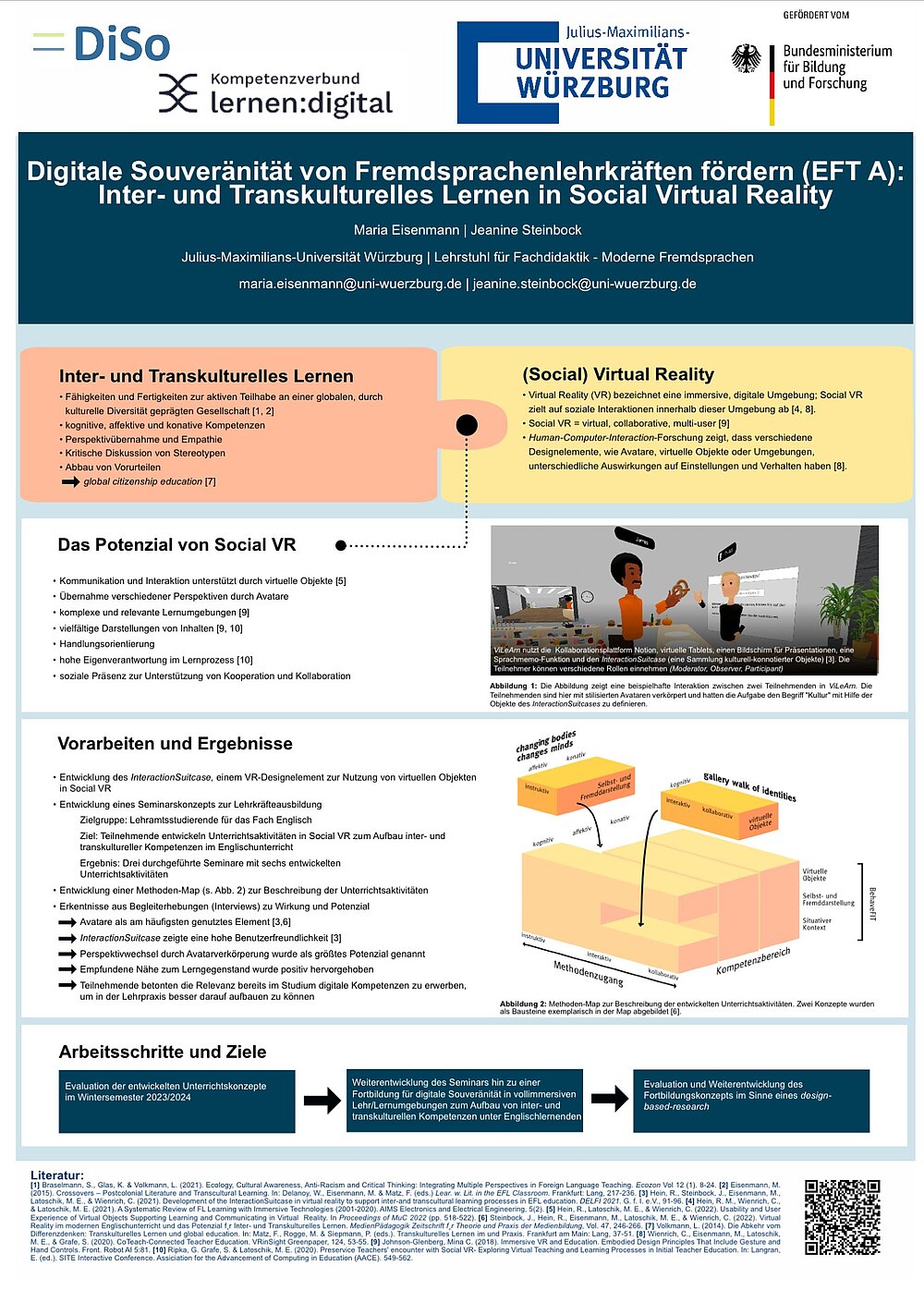DiSo-SGW
Digital Literacy in Languages, Social Sciences, and Economics
DiSo-SGW focuses on the evidence-based and research-oriented development, evaluation, and optimization of prototypical teaching approaches for the diversity-sensitive and digitality-related promotion and enhancement of teachers' professional knowledge in the digital world, focusing on languages, social sciences, and economics. This includes the long-term implementation of innovative and empirically verified teaching concepts, learning environments, and teaching scenarios for digital teaching and learning. The project is organized based on networking and cooperation between educational research, practice, and administration. For this, three development, research, and transfer groups cooperate in DiSo-SGW: EFT A (subject-specific teaching and learning), EFT B (digital tools and concepts), and EFT C (evaluation and dissemination).
EFT A develops, evaluates, optimizes, and implements concepts to promote teachers' digital competence, focusing on language, social, and economic. To this end, nine subject-specific EFT teams from science and school practice were installed, focussing on language (German, DaZ/DaF, English, French) and society/economics (geography, history, politics/social sciences, religion/ethics, economics). All nine EFT A teams aim to collaboratively develop, evaluate, optimize, and implement advanced training modules for teachers in the 2nd and 3rd phases of teacher training.
Building on the BMBF project "CoTeach - Connected Teacher Education", the sub-project at the University of Würzburg is developing an advanced training module that will enable teachers to contribute to a corpus-based and diversity-sensitive English classroom to expand inter- and transcultural competences using social virtual reality (SVR) as part of an ethical-reflexive digital literacy. The aim is to illustrate how VR technologies enable a reflection of the multimedia, multimodal, interactive, and communicative everyday life and the English classroom through presence, immersion, embodiment, agency, and empathy so that interactions with virtual peers and objects that are beneficial to developing inter- and transcultural competences become feasible. A nationwide transfer will follow the evaluation and optimization of the training modules.




